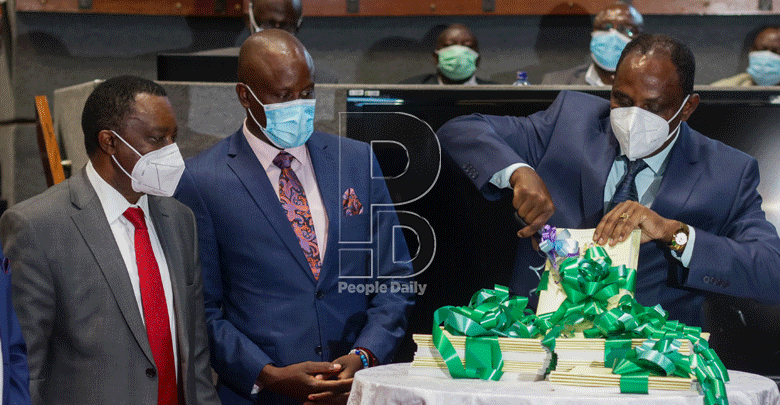Big Four, jobs to guide next budget allocation

Treasury Cabinet Secretary Ukur Yatani yesterday warned of a stricter 2022/23 budget preparation process, hoping to stimulate the economy which has been hit hard by Covid-19 pandemic amid surging debt and dwindling revenues.
Top on the list is the requirement that the selected programmes must stimulate economic growth so as to accelerate recovery from the effects of the pandemic by ensuring expenditures are foolproof.
“I just want to warn the groups, particularly the various chairs of the Sector Working Groups that there is no shopping wishful list here. You are not carrying a bag of goodies for wishful list. It is not a shopping basket,” Yatani said.
“Whatever decisions that we make, whatever expenditure that we undertake whether recurrent or development expenditure must be carefully analysed.
The impact of that expenditure must be foolproof and has to have critical linkages to stimulate the economy in one way or another,” he added.
Yatani spoke during the launch of the financial year 2022/23 and Medium term budget preparation process in Nairobi yesterday.
In what will be President Uhuru Kenyatta’s last budget, Treasury has ensured that programmes have a linkage to the Big Four agenda either as a driver or an enabler of a project that has been undertaken, or a linkage to the country’s economic strategy.
Treasury will ensure that those involved in the budget making process look at how the programmes align to the specific priorities, outcomes and outputs of the third Medium Term Plan and Vision 2030.
“We don’t want a programme that is going to collapse in a year. We want that foresight thinking in terms of linking to the next two years on how this programme impacts on the general welfare of Kenyans,” Yatani said.
Employment creation
Selected programmes will be assessed on how well they address employment creation and poverty reduction.
Yatani noted that unemployment is a serious problem in the country, hence, there was a need to provide work opportunities to young people graduating from the various institutions of learning.
Programmes that address stalled projects and pending bills also be prioritised, according to Treasury boss.
“Low priority expenditures will give way to high priority service delivery programmes, he said.
Yatani, however, took issue with county governments and other public entities that did not pay their bills last financial year, saying the government financed 100 per cent of the budget hence there was no reason to have unpaid bills.
“If there are pending bills that have not been paid for last financial year, that is a very serious breach of financial discipline and we are going to deal with them appropriately,” he said.
Speaking during the event, National Assembly Budget and Appropriations Committee (BAC) chairman, Kanini Kega, called on the sector working groups to prioritise completion of stalled projects during the budget making process.












